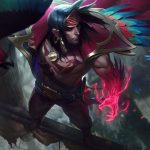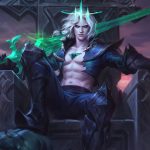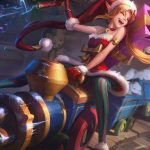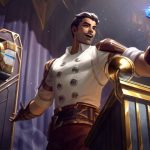Are you curious about whether Loki is legit? Well, look no further! In this article, we’ll dive into the concept of Loki, provide a plot overview, analyze the characters, examine the performances and casting choices, explore the visual effects and production design, discuss the themes and symbolism, delve into the audience reception and popularity, and even compare Loki to other Marvel series.
So, buckle up and get ready for a knowledgeable, detailed, and analytical review of Loki’s legitimacy!
Key Takeaways
- Loki is a complex character in the Marvel Cinematic Universe, known for his cunning and manipulation.
- The plot of Loki takes viewers on a mind-bending journey through time and space, with the introduction of the Time Variance Authority creating conflict and intrigue.
- Tom Hiddleston’s portrayal of Loki is charismatic and enigmatic, making him a fan favorite.
- Loki has received overwhelmingly positive reception from fans, with a captivating storyline, excellent performances, and massive social media buzz.
The Concept of Loki
The concept of Loki is fascinating and has been explored in various movies and TV shows. Loki’s role in the Marvel Cinematic Universe is a complex one, as he is both a villain and a hero at different points in the story. Throughout his appearances, Loki’s character development has been a central focus, allowing viewers to witness his transformation and growth.
In the Marvel Cinematic Universe, Loki initially starts off as a villain, causing chaos and mischief wherever he goes. He is known for his cunning and manipulation, often using his powers of illusion to deceive others. However, as the story progresses, we see glimpses of a more conflicted and vulnerable side to Loki. He struggles with his identity and the expectations placed upon him as the adopted son of Odin.
Loki’s character development is most evident in the film ‘Thor: Ragnarok,’ where he confronts his past actions and makes a conscious choice to help his brother, Thor. This redemption arc showcases his growth and the potential for change within him. Loki’s journey from villain to anti-hero is a testament to the complexity of his character and the depth of his story.
Overall, Loki’s role in the Marvel Cinematic Universe and his character development offer a captivating and nuanced exploration of a complex and multidimensional character.
Plot Overview
Get ready for a mind-bending journey as you delve into the intricate plot of Loki. This Marvel series takes viewers on a thrilling ride through time and space, filled with twists and turns that will keep you on the edge of your seat.
To give you a taste of what’s in store, here’s a breakdown of the key elements that make the plot of Loki so captivating.
-
Introduction to the Time Variance Authority (TVA): The TVA is a powerful organization that oversees the flow of time and ensures that the sacred timeline remains intact. Loki finds himself at odds with the TVA when he is captured for disrupting the timeline, leading to a series of mind-bending encounters.
-
Subplots: Alongside the main storyline, Loki introduces several intriguing subplots that add depth to the narrative. These subplots explore themes of identity, redemption, and the nature of free will, providing a rich and thought-provoking viewing experience.
-
Character development: As the series progresses, viewers witness remarkable character development, particularly in the case of Loki himself. Through his interactions with other characters and his own self-reflection, Loki undergoes a transformation that challenges his beliefs and forces him to confront his past actions.
-
Twists and surprises: Just when you think you have the plot figured out, Loki throws unexpected twists and surprises your way. The show excels at keeping viewers guessing and leaves them eagerly anticipating each new episode.
With its intricate plot, compelling subplots, and well-developed characters, Loki is a must-watch for Marvel fans and anyone who enjoys a mind-bending adventure. Strap in and prepare to be enthralled by this captivating series.
Character Analysis
Prepare to be captivated by the remarkable character development in Loki as you witness the transformative journey of the mischievous god.
Throughout the Marvel Cinematic Universe (MCU), Loki has left an indelible mark on both fans and the franchise itself. From his debut in ‘Thor’ to his recent series on Disney+, Loki’s character development has been nothing short of extraordinary.
Loki’s impact on the MCU cannot be overstated. Initially introduced as a villain, Loki’s complex and multifaceted nature quickly made him a fan favorite. As the God of Mischief, Loki’s cunning and manipulation kept audiences on their toes, never quite knowing what to expect. However, as his story unfolded, we witnessed a gradual shift in his character.
Loki’s character development is a testament to the talented writing and Tom Hiddleston’s exceptional portrayal. We see him evolve from a power-hungry antagonist to a more introspective and morally complex figure. His journey is filled with self-discovery, redemption, and even moments of vulnerability.
What makes Loki’s character development truly remarkable is how it seamlessly intertwines with the larger narrative of the MCU. His role in ‘Avengers’ and subsequent appearances in other films have allowed for a deeper exploration of his character. Loki’s impact on the MCU extends far beyond his mischievous antics; he has become an integral part of the overarching story and mythology.
Performances and Casting
Loki’s character development is elevated by the exceptional performances and casting choices throughout the Marvel Cinematic Universe. The actors who portray Loki bring depth and nuance to the character, ensuring that every appearance on screen is captivating and memorable. Here are four reasons why the performances and casting in Loki contribute to its success:
-
Tom Hiddleston’s portrayal: Hiddleston’s charismatic and enigmatic performance as Loki has made him a fan favorite. He effortlessly captures the complexity of the character, balancing his mischief and vulnerability with a magnetic presence.
-
Supporting cast: The casting of actors like Owen Wilson, Gugu Mbatha-Raw, and Sophia Di Martino adds layers to the story and provides a rich dynamic for Loki to interact with. Their performances enhance the narrative and create compelling relationships with the titular character.
-
Unconventional choices: The casting directors have made bold choices in bringing lesser-known actors to the forefront, allowing them to shine in their roles. This fresh approach injects new energy into the series and keeps the audience engaged.
-
Chemistry: The chemistry between the actors is palpable, creating believable and engaging relationships on screen. This chemistry helps to further develop Loki’s character as he interacts with different individuals, showcasing his growth and evolution throughout the series.
The performances and casting in Loki play a crucial role in the show’s success, enhancing the character development and making for a truly immersive viewing experience.
Visual Effects and Production Design
The visual effects and production design in Loki create a visually stunning and immersive world for you to explore. The show is filled with breathtaking visual effects that bring the fantastical elements of the story to life. From the intricate time-travel sequences to the mesmerizing displays of magic, the visual effects in Loki are top-notch.
The attention to detail in the set design is also commendable. Each location is meticulously crafted to reflect the different time periods and dimensions that the characters traverse. Whether it’s the futuristic TVA headquarters or the decaying ruins of a post-apocalyptic city, every set feels authentic and adds depth to the storytelling.
The production design team has truly created a visually rich and diverse universe within the Marvel Cinematic Universe. The use of color, lighting, and texture further enhances the visual experience, making each frame a work of art.
The visual effects and set design in Loki combine seamlessly to transport you into a world where anything is possible. Get ready to be captivated by the stunning visuals and immerse yourself in the intricate details of this extraordinary universe.
Pacing and Narrative Structure
The pacing in Loki keeps you engaged and the narrative structure keeps you on the edge of your seat. Here’s why:
-
Seamless Transitions: The show smoothly transitions between different timelines and realities, creating a sense of constant movement and excitement. You won’t find yourself getting bored or lost in the story.
-
Well-timed Action: The show knows when to amp up the action and when to slow things down for character development. The pacing strikes a perfect balance, ensuring that you’re always invested in what’s happening on screen.
-
Mystery and Suspense: Loki is filled with twists and turns, leaving you constantly guessing and eager to know what happens next. The narrative structure keeps you hooked, as each episode ends with a cliffhanger that leaves you wanting more.
-
Character-driven Plot: The show focuses on the growth and development of its characters, which adds depth and complexity to the narrative. You’ll find yourself emotionally invested in the journey of Loki and other key characters, making the pacing even more impactful.
While some may argue that there are pacing issues in certain episodes, overall, Loki delivers a thrilling and engaging experience. The narrative structure keeps you hooked from start to finish, making it a must-watch for any Marvel fan.
Themes and Symbolism
In discussing the subtopic of Themes and Symbolism, you will delve into the hidden meanings explored, symbolic motifs analyzed, and themes and subtext decoded within a particular work of art or literature.
By examining the layers of interpretation and uncovering the underlying messages, you will gain a deeper understanding of the artist’s intentions and the significance of the symbols used.
This analytical approach will allow you to appreciate the complexity and richness of the work, as well as explore the deeper implications and social commentary embedded within.
Hidden Meanings Explored
Exploring hidden meanings in Loki’s storyline reveals a deeper layer of complexity. The show is filled with symbolic interpretations and hidden messages that add depth to the narrative. Here are four intriguing hidden meanings to uncover in Loki:
-
Mirror of Society: Loki’s journey mirrors our own struggles with identity and self-discovery, forcing us to question our own existence.
-
Time as a Construct: The concept of time is deconstructed in Loki, challenging our perception of reality and the limits of our understanding.
-
Power Dynamics: The show explores the abuse of power and the consequences it carries, prompting us to reflect on the balance between authority and individual agency.
-
Redemption and Growth: Loki’s path towards redemption and personal growth serves as a reminder that change is possible, even for the most flawed characters.
Symbolic Motifs Analyzed
By analyzing the symbolic motifs in Loki, you can uncover hidden layers of meaning that enhance your understanding of the show. The use of these motifs adds depth and complexity to the narrative, inviting viewers to decode hidden messages and explore deeper meanings.
One prominent motif in Loki is the concept of time. The Time Variance Authority (TVA) represents the control and manipulation of time, symbolizing the power dynamics and the struggle for control in the story. The repeated imagery of clocks and ticking timepieces further reinforces this motif.
Another significant symbolic motif is the mirror. Mirrors are often associated with self-reflection and identity, and in Loki, they reflect the character’s journey of self-discovery and self-acceptance.
The use of these symbolic motifs adds a rich layer of storytelling, allowing viewers to engage with the show on a deeper level and unravel its hidden messages.
Themes and Subtext Decoded
The themes and subtext in Loki can be deciphered through careful analysis and observation. This allows for a deeper understanding of the show’s symbolic interpretation and underlying messages.
Here are four key elements to consider when decoding the themes and subtext in Loki:
-
Identity: The show explores the concept of identity through the character of Loki, who grapples with his own sense of self and questions his purpose in the universe.
-
Power and Control: Loki delves into the themes of power and control, highlighting the destructive nature of seeking absolute power and the consequences it can have on individuals and society.
-
Free Will vs Determinism: The show raises questions about free will and determinism, examining whether our actions are predetermined or if we have the agency to shape our own destinies.
-
Existentialism: Loki prompts us to question the meaning and purpose of existence, inviting us to contemplate our own place in the vastness of the universe.
Audience Reception and Popularity
Loki’s audience reception and popularity have been overwhelming, with fans praising the show’s captivating storyline and excellent performances. From the moment the show premiered, it has generated a massive social media buzz, with fans taking to platforms like Twitter and Instagram to share their excitement and theories about the show.
The audience reception has been overwhelmingly positive, with many praising the show’s unique take on the beloved character and its ability to balance humor, action, and character development.
One of the reasons why Loki has resonated so strongly with audiences is its intriguing storyline. The show takes viewers on an unpredictable journey through time and space, introducing complex themes and subtext that keep them engaged and invested.
The performances of the cast, particularly Tom Hiddleston as Loki, have also been widely praised. Hiddleston brings a depth and complexity to the character, capturing both his mischievous nature and his vulnerability.
The social media buzz surrounding Loki has only added to its popularity. Fans are actively discussing their theories, dissecting each episode, and eagerly awaiting the next installment. The show’s ability to generate such excitement and engagement speaks to its ability to captivate audiences and keep them hooked week after week.
Loki’s audience reception and popularity are a testament to the show’s quality and its ability to connect with fans on a deep level.
Comparisons to Other Marvel Series
If you’re a Marvel fan, you’ll find the comparisons between Loki and other Marvel series intriguing. The latest addition to the Marvel Cinematic Universe, Loki, has made quite an impact on the MCU with its unique storytelling approach. Here’s why it stands out:
-
Character Development: Unlike other Marvel series, Loki dives deep into the character of the God of Mischief himself. It explores his journey of self-discovery and redemption, making him a more complex and relatable character.
-
Time Travel and Multiverse: Loki introduces the concept of time travel and the multiverse, expanding the possibilities for future Marvel storylines. It opens up a whole new realm of storytelling, creating endless opportunities for crossovers and epic events.
-
Intricate Plot: With its intricate plot, Loki keeps you on the edge of your seat. It weaves together elements of mystery, action, and drama, leaving you wanting more with every episode.
-
Implications for the MCU: The events of Loki have far-reaching implications for the MCU. It sets the stage for Phase 4 and beyond, introducing new threats, characters, and storylines that will shape the future of the Marvel universe.
Overall, Loki’s comparisons to other Marvel series highlight its impact on the MCU and its unique storytelling approach. It’s a must-watch for any Marvel fan craving a fresh and exciting take on the beloved God of Mischief.
Final Verdict: Is Loki Legit?
Overall, fans are loving Loki and its unique storytelling approach, making it a must-watch for any Marvel enthusiast. Loki’s impact on the Marvel Cinematic Universe cannot be overstated. The series delves deep into the character of Loki and explores his motives, actions, and growth in a way that we haven’t seen before. It adds layers to his character, making him more complex and intriguing.
The show also introduces new concepts and timelines, expanding the scope of the MCU and setting the stage for future movies and series.
In terms of the future of Loki in the Marvel franchise, the possibilities are endless. The series has opened up numerous storylines and avenues for exploration. We could see Loki teaming up with other Marvel characters or even leading his own standalone film. With the introduction of the multiverse, Loki’s story can intertwine with other characters and events, creating a rich tapestry of interconnected stories.
Frequently Asked Questions
How Does Loki Tie Into the Larger Marvel Cinematic Universe?
Loki’s impact on the MCU is significant as it explores the concept of the multiverse. With his role in the series, Loki becomes a key player in shaping the future of the Marvel Cinematic Universe.
Are There Any Easter Eggs or Hidden References in Loki That Fans Should Look Out For?
In Loki, there are numerous Easter egg references and hidden details that fans should keep an eye out for. These little nuggets of information add depth and connect the show to the larger Marvel Cinematic Universe.
What Is the Significance of the TVA (Time Variance Authority) in the Series?
The significance of the TVA in Loki lies in its role as the governing body for time manipulation and the prevention of Nexus events. It ensures the proper flow of time and maintains order in the multiverse.
How Does Loki’s Character Development Compare to His Previous Appearances in the Mcu?
Loki’s character development in the MCU has been a fascinating journey. From his early days as a villain to his growth in the TV series, we’ve seen a deep exploration of his redemption and transformation.
Will There Be a Second Season of Loki?
Yes, there will be a second season of Loki. The future of the Loki series looks promising, with fans eagerly anticipating more of the God of Mischief’s adventures and character development in Loki Season 2.





